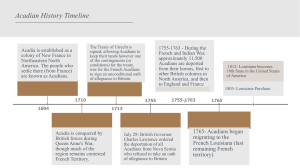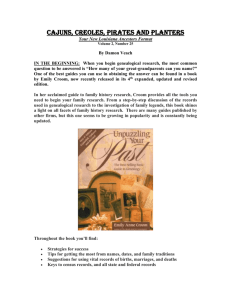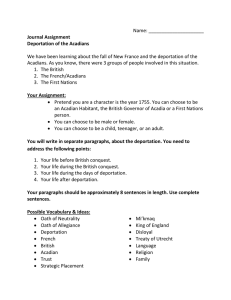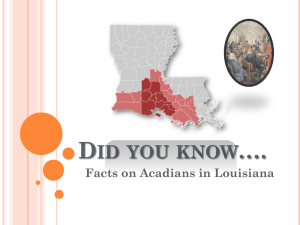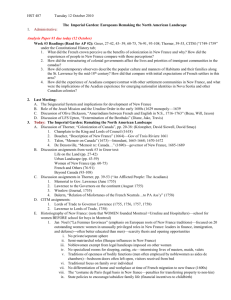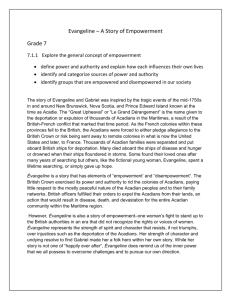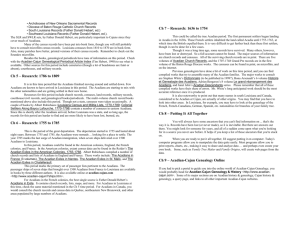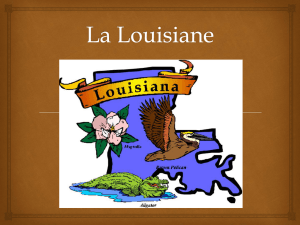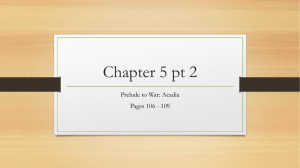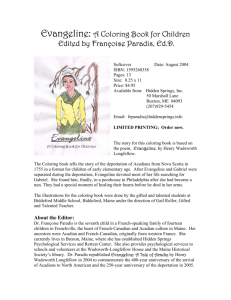The Acadian Expulsion - Prairie Spirit Blogs
advertisement
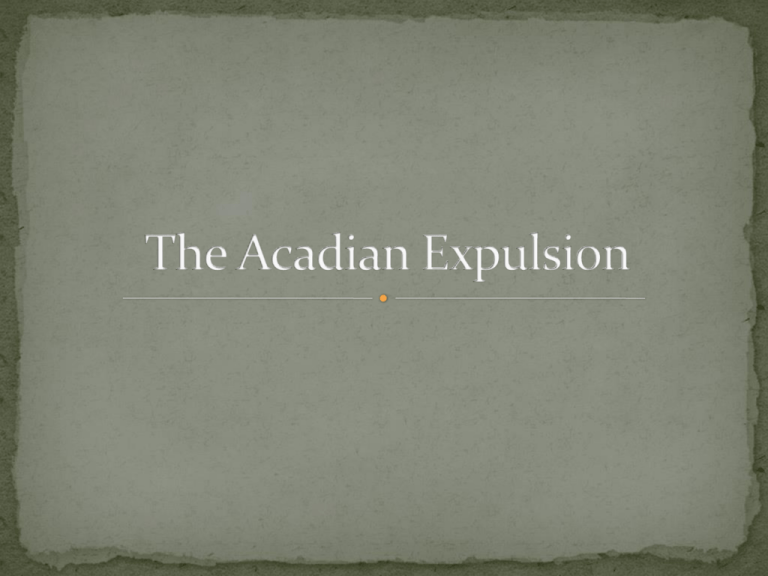
Acadia was a French Settlement that began in the Early 1600’s. The colony grew until they became an successful society independent from French control with a culture and social structure all their own. The Acadians developed a very egalitarian society and thoroughly rejected the French seigneurial system that had taken shape in the rest of New France. The Acadians saw themselves as a peaceful, pastoral society and tried their best to remain neutral and passive in world affairs. Throughout most of Acadia’s existence, the Acadians were caught in the middle between the French and British Empires in the fight for dominance in North America. As mentioned earlier, the Acadians tried their best to stay out of the conflict and remain an independent culture and society. This strategy worked fairly well until the British gained control of the Acadian territory in 1713. The Acadians were given two choices by the British: They could forfeit all of their property and relocate to French territory, or they could swear an oath of unconditional allegiance to the British King The Acadians politely refused Britain's demands, and instead declared that while they would not swear allegiance to the King, they promised to remain neutral in any conflict between Britain and any other nation. They just wanted to live in peace, and their true goal was to be independent of both Britain and France. This neutrality was actually put to the test when another conflict between Britain and France arose and both sides demanded the Acadians fight for them. Again, they refused. Acadian society prospered in this neutrality between 17131749 and actually considered themselves Acadians rather than French or British. In 1753, Colonel Charles Lawrence was named Governor of Nova Scotia. Lawrence decided to take a hard-line stance with the Acadians. He saw them as a conquered people who should obey their colonial masters. Lawrence arrested the Acadian leaders when they would not sign an oath of allegiance and ordered the deportation of all Acadians who would not sign the oath. Acadian Expulsion, Grand Pré 1755 C.W.Jefferys Between 1755 and 1764, over three quarters of the Acadian population were forcefully taken from their homes and deported. Many Acadians escaped to Quebec, the American Colonies, or back to France. During the madness of the deportations, many families were separated, never to see their loved ones again. Of the 7,000 Acadians arrested and put on cargo ships, approximately 3,000 died of various diseases. This remains one of the darkest and most brutal chapters in Canadian history. Many Acadians ended up in French controlled Louisiana, where they eventually became known as Cajuns. One of the most popular and enduring poems in American Culture is Longfellow’s Evangeline, which is the story of a young Acadian girl, Evangeline, and her lifelong search for her lover Gabriel, who she had not seen since the Great Upheaval. Evangeline searches all over the country for Gabriel. She finally finds him in her very old age while working as a nun tending to the poor. She finds him among the victims of an epidemic and he dies in her arms.
